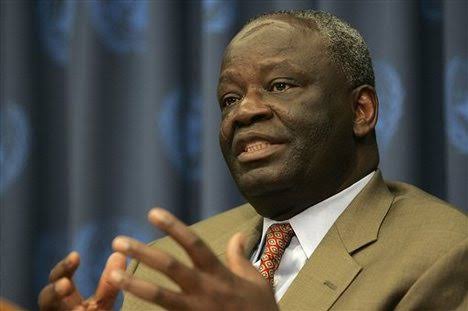Prof. Ibrahim Agboola Gambari, who previously served as Chief of Staff to President Muhammadu Buhari and as Nigeria’s Permanent Representative to the United Nations, expressed concerns about the effectiveness of economic strategies proposed by the International Monetary Fund (IMF) and the World Bank. He made these remarks during the Realnews 12th Anniversary Lecture in Lagos, asserting that these economic policies have not succeeded in improving Nigeria’s economy.
Gambari pointed out that if the recommendations from the IMF and World Bank had truly worked, Nigerians would be enjoying a higher standard of living today. He stated, “Frankly speaking, all the prescriptions of the IMF and the World Bank over the years, where has it gotten us? Now that I’m no longer part of government, I can speak more freely.”
He emphasized the need for Nigeria to identify its own challenges and create tailored solutions. “If the IMF and World Bank’s prescriptions had been correct, we should be living happily today—but we are not. To make matters worse, the world itself is changing, and the international community is evolving; global relationships and norms are shifting,” he added.
Reflecting on his time as Minister of Foreign Affairs during the early 1980s, Gambari recalled that Nigeria’s military government had rejected the advice of the IMF and World Bank. He reminisced, “Even then, four decades ago, we felt it was time for Africans to define their problems and develop their own institutions.”
In his lecture titled “Africa in a Shifting Global Landscape: Demography, Technology, Artificial Intelligence, and Natural Resources,” he stressed the importance of strengthening African institutions such as the African Union, the Economic Community of West African States, and the African Development Bank. He noted that the ongoing global changes are likely to lead to significant transformations within the international system, urging nations—regardless of size or location—to prepare themselves to avoid being marginalized in this new world order.
Gambari also discussed the rising impact of digital technologies and artificial intelligence, highlighting the competition among various powers to establish military bases across Africa. He pointed out that the continent is once again becoming a focal point in a new geopolitical rivalry, with interests in securing access to vital minerals, arable land, and forests.
He remarked, “Investments are also being made to build stable political alliances with African governments. The age of zero-sum geopolitics is back, bringing destabilizing consequences for many African countries.”
Gambari underscored the potential of Africa’s youthful population, which exceeds a billion, positioning the continent for a crucial role in global demographics at a time when many other regions face population decline and aging. He emphasized the necessity for African nations to formulate national and regional strategies that harness the energy, innovation, and vision of their youth.
“In this new global order, Africa must ensure it is not just a passive player but an active rule-maker,” he asserted.
Earlier in the event, Maureen Chigbo, the Publisher and Editor of Realnews, welcomed the attendees and reiterated the magazine’s commitment to investigative journalism aimed at fostering a strong and vibrant society. She stated, “For the past 12 years, Realnews has remained faithful to its vision of providing investigative, robust, and excellent journalism, covering sectors such as politics, oil and gas, business, economy, women, youth, and the environment.”
Other prominent speakers included Ms. Beatrice Eyong, Country Representative of UN Women; Dr. Karim El Aynaoul, Executive President of the Policy Centre for the New South in Rabat, Morocco; and Mrs. Hadiza Bala Usman, Special Adviser to President Tinubu on Policy and Coordination.


